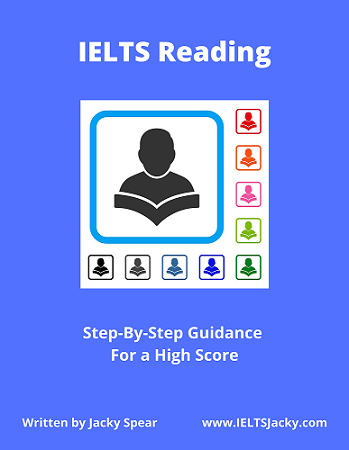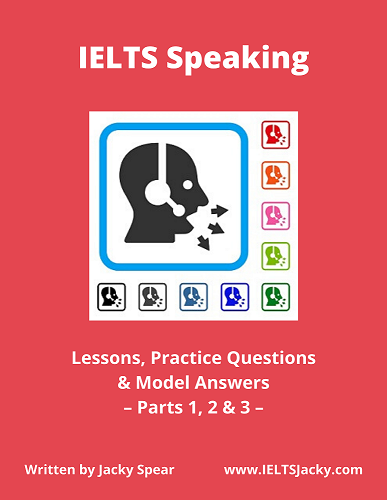IELTS Essay Planning
- How To Plan a Task 2 Essay -
It is essential that you understand how to plan your Task 2 IELTS essay. On this page, you will learn:
- 4 reasons why you must plan your IELTS essay
- 4 simple steps of essay planning
- 4 strategies for generating ideas
- 4 part essay structure
Each year, many high level students fail to get the Band 7 or 8 score they are capable of achieving simply because they didn’t plan their Task 2 essay.
In case you are one of the people who insist that they don’t have time to plan, here are four key reasons why you should.
Want to watch and listen to this lesson?
Click on this video.
4 Reasons Why You Must Plan Your IELTS Essay
1) Planning saves you time
If you plan your essay before you start writing, you will already know what you are going to say and won’t need to keep stopping to think about the next idea. This means that you will be able to write much faster than if you don’t have a plan.
You only need to spend 5 minutes in the planning stage. That leaves a full 35 minutes to write and check your essay.
2) Planning results in a more relevant answer
Remember, 25% of your marks are for task achievement. This includes,
- Answering all parts of the question
- Presenting relevant ideas that are well-developed
- Having clear supporting points to extend the main idea
A common mistake in IELTS essay writing is the failure to answer all parts of the question.
Part of the planning process involves thinking up ideas to include in your essay. Taking the time to analyse the question and focus on generating a few key ideas with relevant examples will ensure that you answer the question fully.
3) Planning results in a better structure
Another 25% of the marks are for coherence and cohesion. This includes,
- Organizing your ideas into a logical order
- Having a separate paragraph for each main idea
- Linking your paragraphs appropriately
You can have the best ideas in the world, but unless you can develop them into a well-structured essay, you will not score highly for coherence and cohesion.
The examiner needs to be able to understand what you are saying and see a clear progression of relevant ideas. Without a plan, this is difficult to achieve.
Trying to write an IELTS essay without planning it first is like going on a journey without a map. You’ll probably reach your destination eventually but you’ll undoubtedly take a random route with a few false turns along the way. It would certainly be extremely difficult for anyone else to follow your meandering path.
Spending a few minutes planning your essay will give you an easy to follow map taking you right through from your introduction to your conclusion. The result will be a well-structured essay and a very happy examiner.
4) Planning results in fewer grammatical errors
With your ideas and essay structure planned out before you start writing, you will have more time to focus on getting your grammar right. Fewer grammatical errors means more marks.
You should also be left with enough time at the end to check your essay for mistakes and to correct them.
Now that you understand why you must plan your Task 2 IELTS essay, we’re going to look at how to plan it.
The 4 Simple Steps of IELTS Essay Planning
- Analyse the question
- Generate ideas
- Record synonyms
- Plan the structure
Analyse the Question
The number one mistake many students make is not answering the question properly.
The way to avoid this is to carefully analyse the question before you do anything else. Knowing how to do this is so important that I’ve written a whole page on it. Follow this link to read it:
How To Understand and Analyse IELTS Writing Task 2 Questions
Here’s a summary of the most important points.
Students regularly make these 4 mistakes:
1. They don’t spend time carefully reading and analysing the question.
2. They fail to recognise the type of question being asked.
3. They don’t fully understand the question.
4. They write about the general topic rather than answering the specific question.
Fortunately, there is a quick and easy way to analyse and understand Task 2 IELTS essay questions. You just need to identify 3 different types of words:
# 1 Topic words
# 2 Other keywords
# 3 Instruction words
Here is a typical IELTS essay question with the different types of words highlighted.
Sample question:
In some poorer areas of large cities people are too afraid to leave their houses at night time due to a fear of crime.
What are the causes of crime in those areas and what can be done to tackle those problems?
Topic words
The topics words (in blue) are the ones that identify the general subject of the question.
So, this question is about ‘fear of crime’. We now need to know what aspect of ‘fear of crime’ we are required to write about. For this information, we look at the other key words.
Other keywords
The other keywords (in red) in the question tell you the specific topic you must write about. They define the opinion stated in the statement.
Here they are, isolated from the statement:
- large cities
- poor areas
- afraid to leave their houses
- night time
These are the only aspects of ‘fear of crime’ that you should write about. Do not write about ‘crime’ or ‘fear of crime’ in general or you will be given a low mark for task achievement.
Instruction words
The instruction words are all the words that come after the question statement. They tell you exactly what the examiner wants you to do. For example,
What are the causes of crime in those areas and what can be done to tackle those problems?
25% of your marks are determined by how well you answer the question.
Our sample question is a ‘causes and solutions’ question. It requires you to give clear ideas on both the causes of crime in poor areas of large cities and some possible solutions.
A common mistake is to write about just one side of the issue, e.g. just the causes, or to not fully develop both sides, resulting in an unbalanced essay.
How To Generate Ideas
With only a few minutes to come up with the ideas to write about, you need an idea generation strategy that works well for you and that you have practiced beforehand.
We all think in slightly different ways so what works for one person might be completely the wrong method for someone else. Different techniques can also work well for different question types so it’s worth having two methods that you can use confidently. You’ll then be ready for whatever type of question you get.
There are 4 main techniques for generating ideas for your Task 2 IELTS essay:
- Brainstorming
- Mind-mapping
- Friends technique
- Examples method

Brainstorming
This is where you analyse the question and quickly jot down as many related ideas as come into your head as possible.
The drawback with this method is that you can end up with lots of ideas but not enough time to sort them and pick out the most relevant ones before you have to start writing.
Mind-mapping
Mind-mapping is similar to brainstorming but will help you to organise your thoughts as they come to you by relating each though to a specific part of the question.
You can still have the problem of too many ideas but many students use this method successfully, especially those who already have experience of creating mind maps.

Friends Technique
This is the method I prefer. It allows you to take a step back from the stress of the exam situation and think more calmly.
Here’s how it works. Imagine you are chatting with a friend and they ask you the question in a casual conversation. What answers would you give them off the top of your head? Plan your essay around these ideas.
Doing this will help you to come up with simple answers in everyday language rather than straining your brain to think of amazing ideas using high level language, which isn’t necessary.
Example method
Sometimes you can use this technique on its own but for many questions, it’s a method that will help you generate ideas to support the main points in your IELTS essay. Examiners love relevant examples.
All you do is to think of specific examples related to the question. These can come from your own experience or be something you’ve read or heard about. You should be reading newspapers, magazines and topical websites as part of your general exam preparation so you may well have seen an article, study or report that you could use as an example.
You can even make up examples or tweak real examples to better fit the question. The examiner isn’t going to check your facts but they must, of course, be plausible.
Our sample question on 'fear of crime', is a topic often covered in the media. Or maybe you know someone who's afraid to go out at night because of local crime.
Once you’ve thought of an example, ideas to include in your essay should come to you easily.
You’ll find illustrations of how to use these four techniques on the pages on the individual question types.
Vocabulary for Your Task 2 Essay
Before I move on to talking about the structure of your Task 2 IELTS essay, I want to look briefly at vocabulary.
You need to cover as much as possible in the planning stage and this includes vocabulary. You don’t want to be searching your brain for the right words while you’re writing your essay. The writing stage is the time for focusing on grammar and linking your ideas.
You don’t need to use complex, high level words and phrases to get a high mark but you do need to use appropriate, topic-related vocabulary and to avoid repeating the same words many times over. This is particularly true of the vocabulary included in the question. So, you need to think about possible synonyms you could use.
I’ll use our sample question as an illustration. I’ve added the colour coding again because it’s the key words that you’ll want to find alternatives for.
Sample question:
In some poorer areas of large cities people are too afraid to leave their houses at night time due to a fear of crime.
What are the causes of crime in those areas and what can be done to tackle those problems?
Here are just a few relevant synonyms:
poor area – deprived neighbourhood, impoverished locality
city – metropolis, urban area
night time – after dark
cause – reason for, source of, origin of
what can be done – solution, answer to the problem
Write down synonyms as you analyse the question and choose which ideas to include in your essay.
How to Structure Your Essay
The final step in the process of planning your Task 2 IELTS essay is to set out the structure, that is, to organise your ideas so that they flow logically from one to the next and answer all parts of the question.
Most essays should have 4 paragraphs. Each of the 5 types of question requires a slightly different structure which I go into in detail on their individual pages. Here, I’m going to give you a general overview.
The 4 paragraph structure:
1) Introduction: Paraphrase the question
If required, state your opinion
2) Body paragraph 1: Main idea
Explanation
Example
3) Body paragraph 2: Main idea
Explanation
Example
4) Conclusion: Summary of main ideas
If required, restate your opinion
This structure is easy to memorise. Once it’s fixed in your mind, all you need to do is to fill in each part with your ideas. With all this planning done, the actual writing of your essay will be fairly straightforward.
This may seem a lot to do in the 5 minutes planning time you should allow for it but it’s very doable if you get in lots of practice before exam day. Start slowly as you learn how to plan your IELTS essay and gradually speed up until you can complete all the steps in around 5 minutes.
More Help With IELTS Essay Writing
IELTS Writing Test – Understand the format & marking criteria, know what skills are assessed & learn the difference between the Academic & General writing tests.
IELTS
Writing Tips – Top 10 tips to bring you success in your writing test.
Essential information you need to know to achieve a high score.
Task 2:
IELTS Writing Task 2 – The format, the 5 question types, the 5 step essay writing strategy & sample questions. All the key information you need to know.
The 5 Types of Task 2 Essay – How to recognise the 5 different types of Task 2 essays. 15 sample questions to study and a simple planning structure for each essay type.
Understanding Task 2 Questions – How to quickly and easily analyse and understand IELTS Writing Task 2 questions.
How To Write a Task 2 Introduction – Find out why a good introduction is essential. Learn how to write one using a simple 3 part strategy & discover 4 common mistakes to avoid.
How To Write Task 2 Main Body Paragraphs – Learn the simple 3 part structure for writing great main body paragraphs and also, 3 common mistakes to avoid.
How To Write Task 2 Conclusions – Learn the easy way to write the perfect conclusion for a Task 2 essay. Also discover 4 common mistakes to avoid.
Task 2 Marking Criteria – Find out how to meet the marking criteria in Task 2. See examples of good and poor answers & learn some common mistakes to avoid.
The 5 Task 2 Essay Types:
Step-by-step instructions on how to plan & write high-level essays. Model answers & common mistakes to avoid.
Advantages & Disadvantages Essays








